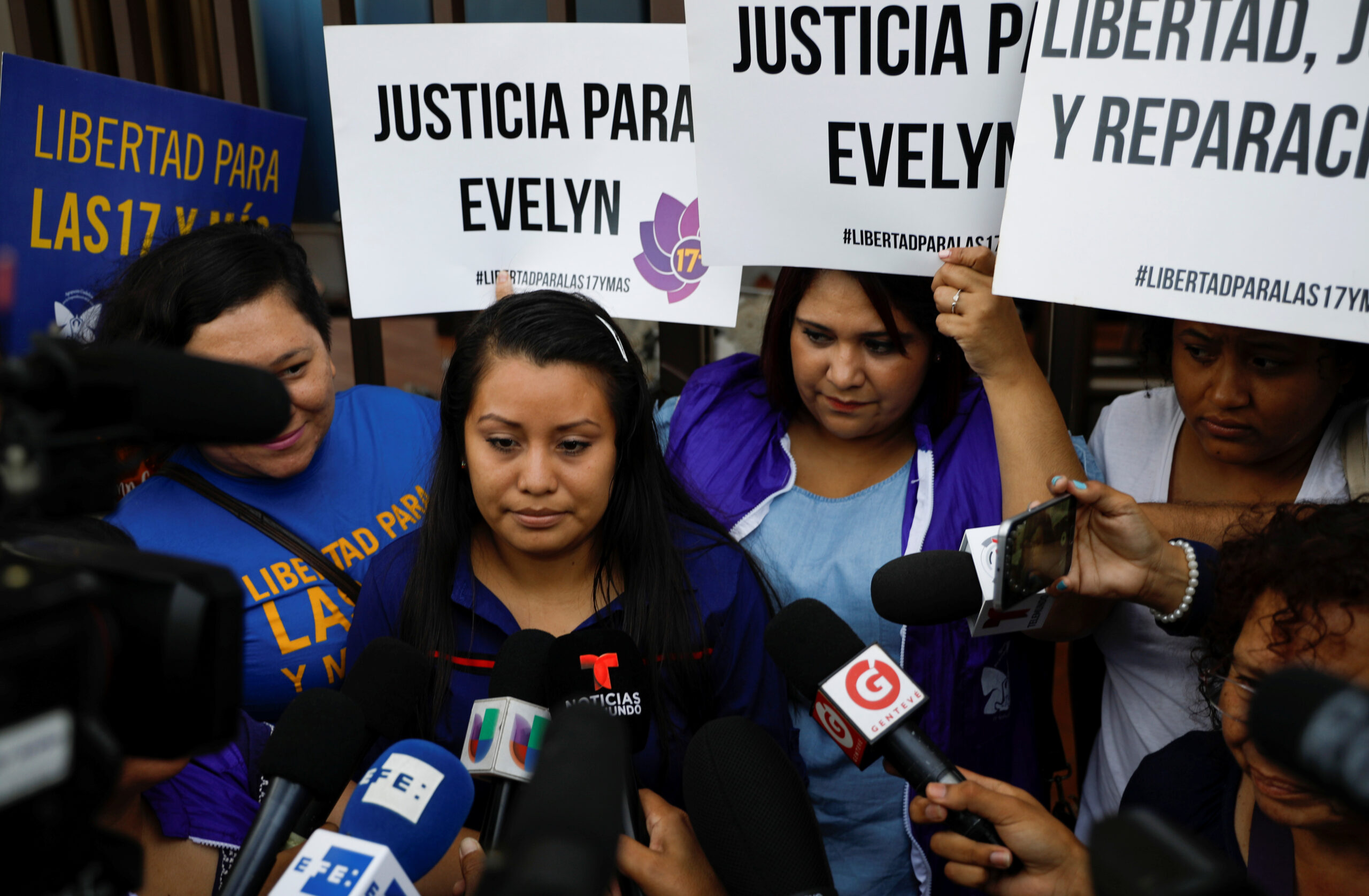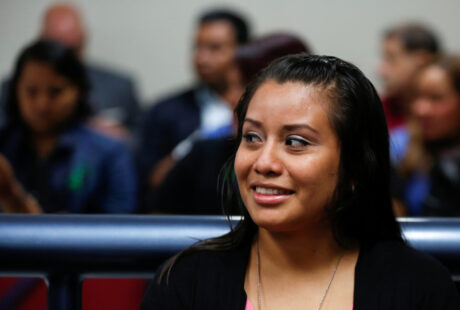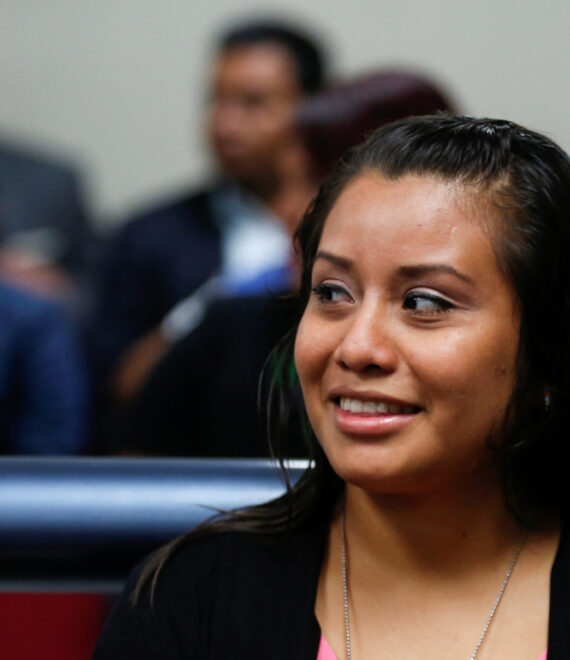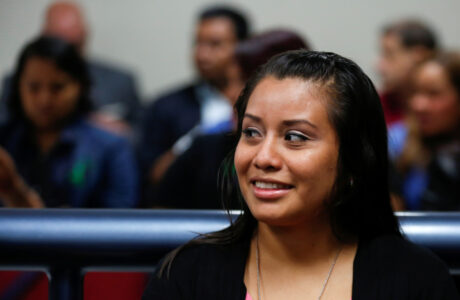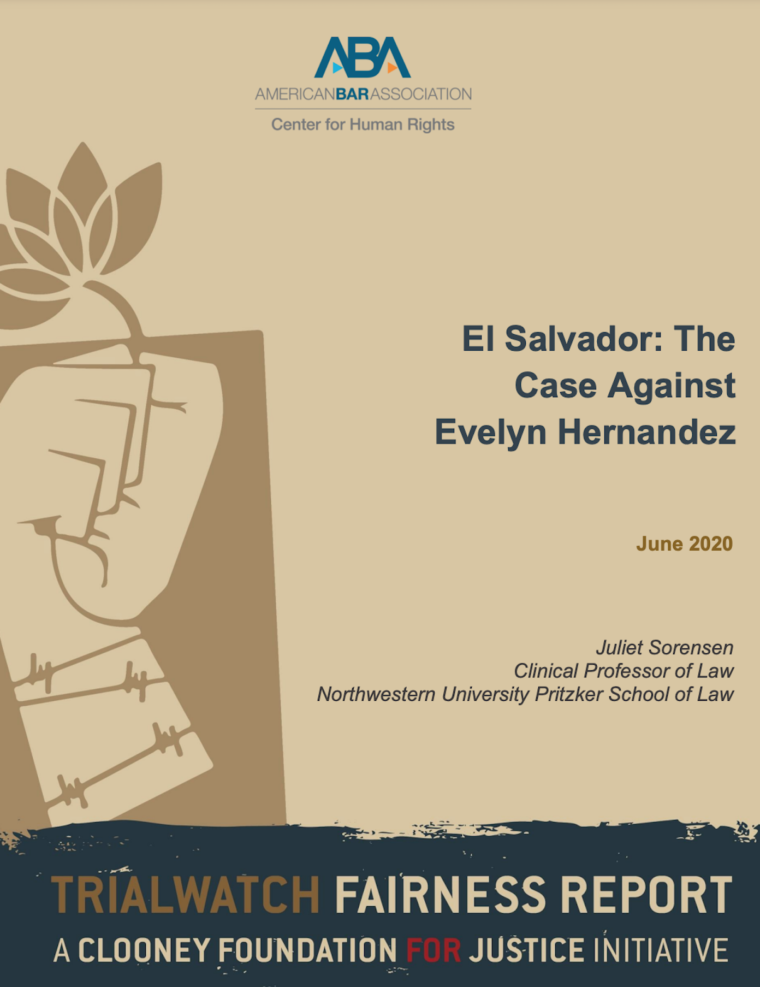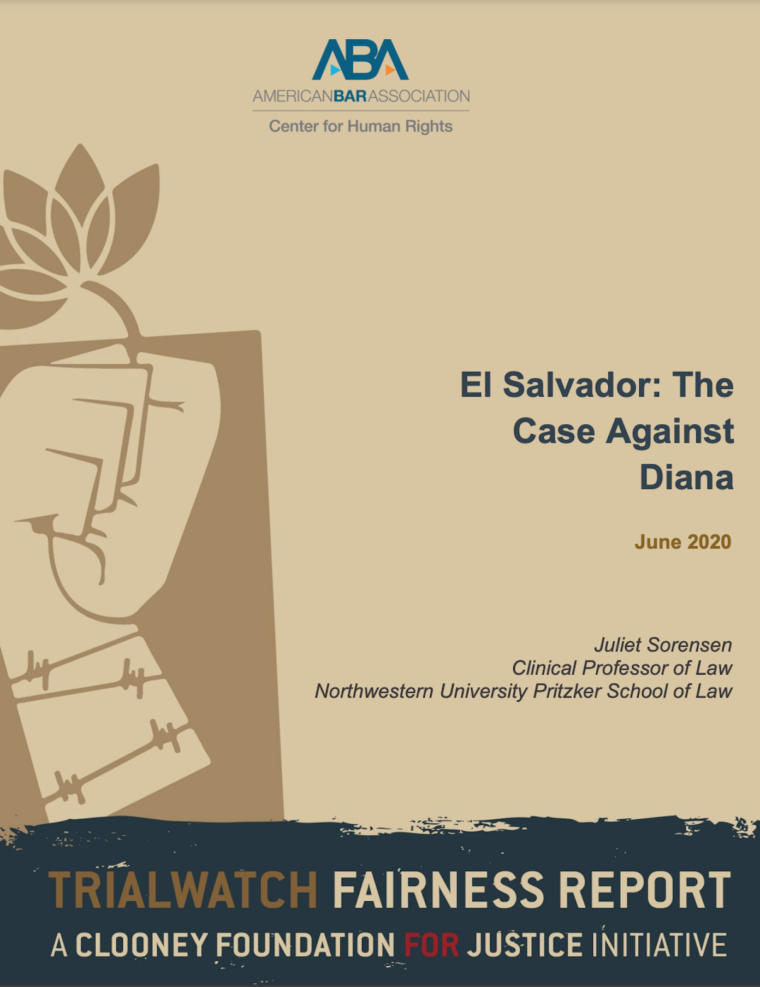El Salvador outlaws abortion in all circumstances and can prosecute alleged abortions as aggravated homicide. Women, in particular women from low socio-economic backgrounds, have been prosecuted for suffering obstetric emergencies that result in pregnancy loss.
This pattern was borne out in the cases of two women whose trials were monitored by the Clooney Foundation for Justice’s TrialWatch initiative through our partner the American Bar Association Center for Human Rights.
TrialWatch and The Center for International Human Rights at Northwestern Pritzker School of Law then filed an amicus brief with the Inter-American Court of Human Rights. The brief called on the court to hold El Salvador accountable for human rights violations in the case of a woman who died in custody after being convicted of aggravated homicide for pregnancy complications.
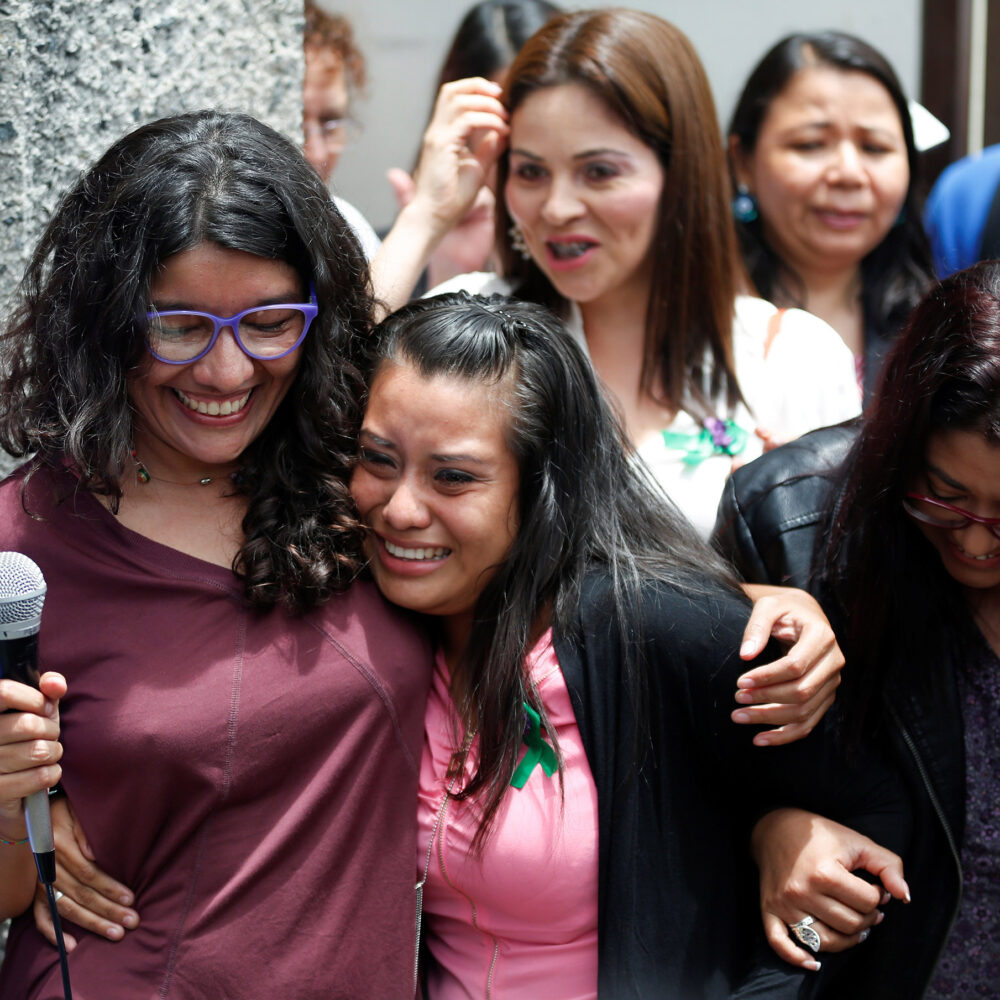
In November 2022, the Court ordered $200,000 in compensation for the victim’s family, legal reforms to women’s healthcare and for women seeking treatment at hospitals, and training on gender bias for people working in the justice sector to prevent such abuses in the future.
Evelyn Hernandez was prosecuted for aggravated homicide based on an obstetric emergency she suffered while giving birth. TrialWatch monitored her case, and she was ultimately acquitted. CFJ did not stop there and intervened in support of Salvadorian women more broadly in a landmark case before the Inter-American Court of Human Rights challenging El Salvador’s prosecution of women who have undergone obstetric emergencies.
